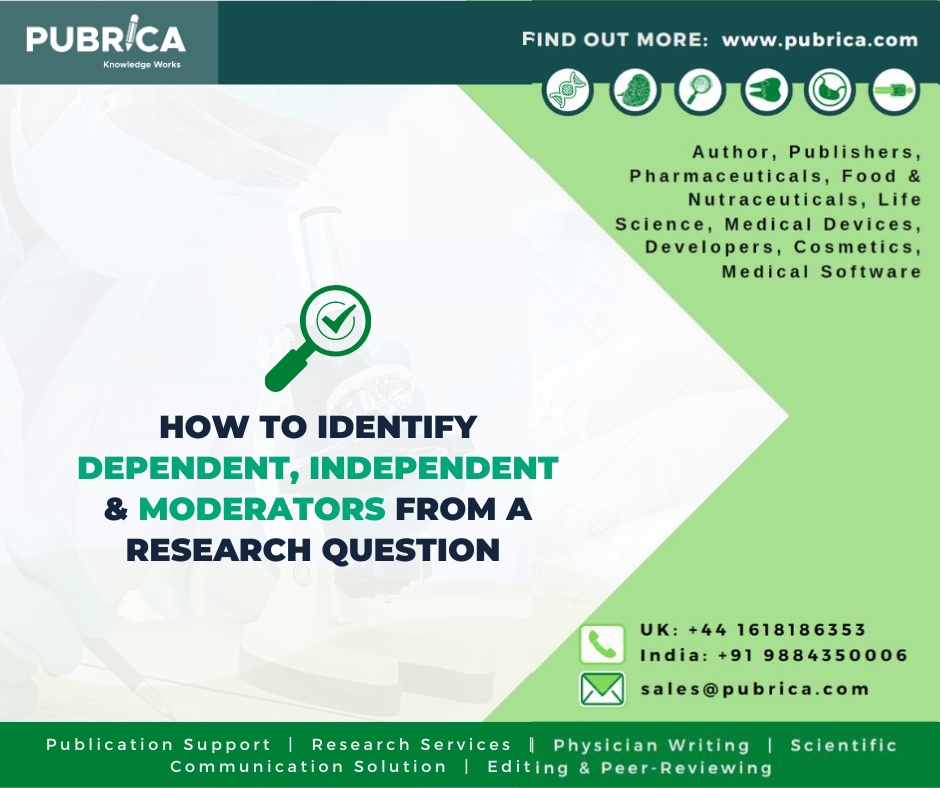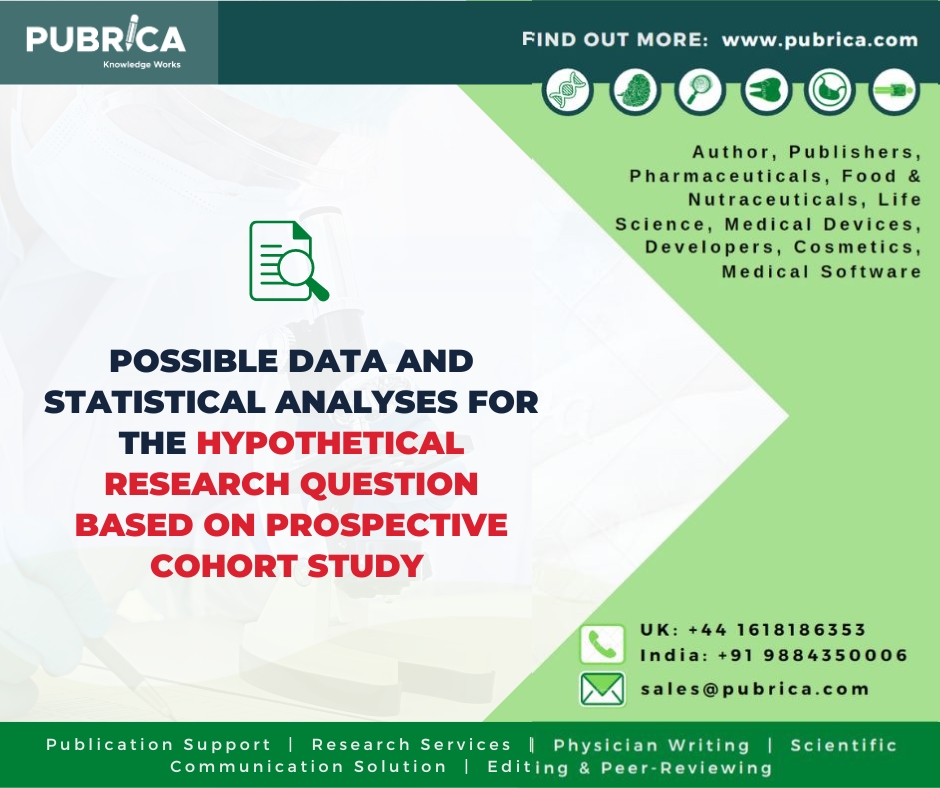
How to Identify Dependent, independent & Moderators from a research question
April 12, 2023
Possible Data and Statistical Analyses for the Hypothetical Research Question based on Prospective Cohort Study
April 20, 2023In brief
Prospective cohort study
All data in this sort of cohort study is obtained prospectively. The investigator determines who will be included in the cohort. The possible exposure of interest is then measured. The investigator then categorizes the subjects as exposed or unexposed. The investigator then follows these individuals. Next, the investigator gathers information on additional factors pertinent to the clinical case study at baseline and during follow-up. (such as confounding variables). The investigator then evaluates the outcome of their interest in these individuals. Some of these outcomes may occur just once (such as death), whereas others may occur several times. (for example, conditions which may recur in the same individual – diarrhoea, wheezing episodes, etc.).
Introduction
Prospective cohort studies are helpful when investigating the association between exposures (such as lifestyle habits, environmental factors, or medical treatments) and outcomes (such as disease incidence or mortality) over a period of time. Here are some situations where prospective cohort studies may be appropriate:
- Investigating the natural history of disease: Prospective cohort studies can be used to investigate the natural history of a disease, including risk factors, progression, and outcomes.
- Studying the effects of an intervention: Prospective cohort studies can be used to assess the effects of an intervention, such as a medical treatment or public health program, on disease incidence or other outcomes.
- Identifying risk factors for disease: Prospective cohort studies can be used to identify risk factors for disease, including demographic, lifestyle, and medical factors.
- Exploring the dose-response relationship between an exposure and an outcome: Prospective cohort studies can be used to examine the dose-response relationship between an exposure and an outcome, such as the relationship between physical activity level and cardiovascular disease risk.
- Examining the role of potential confounding factors: Prospective cohort studies can be used to examine the role of potential confounding factors, such as demographic, lifestyle, and medical factors, in the relationship between exposure and an outcome.

Overall, prospective cohort studies are helpful for investigating long-term associations between exposures and outcomes and can provide valuable information for understanding the aetiology and prevention of diseases.
Conclusion
Prospective studies are conducted from the present to the future. Prospective studies have the benefit of being geared to collect specific exposure data and may be more thorough since they are conducted using specialized data-collecting methods. For example, a prospective cohort study’s disadvantage may be the lengthy follow-up period while waiting for events or illnesses to develop. As a result, this research design is ineffective for studying illnesses with extended latency periods and is susceptible to a high loss to follow-up rate.
About Pubrica
Pubrica’s team of researchers and writers generates scientific and medical research articles that might be significant resources for practitioners and authors. Pubrica medical writers aid you in creating and rewriting the introduction by informing the reader of the gaps in the selected research field. Our experts are aware of the sequence in which the broad topic, issue, and background are followed by the particular subject in which the hypothesis is given.
References
- Setia MS. Methodology Series Module 1: Cohort Studies. Indian J Dermatol. 2016 Jan-Feb;61(1):21-5. doi: 10.4103/0019-5154.174011. PMID: 26955090; PMCID: PMC4763690.
- Song JW, Chung KC. Observational studies: cohort and case-control studies. Plast Reconstr Surg. 2010 Dec;126(6):2234-2242. doi: 10.1097/PRS.0b013e3181f44abc. PMID: 20697313; PMCID: PMC2998589.



